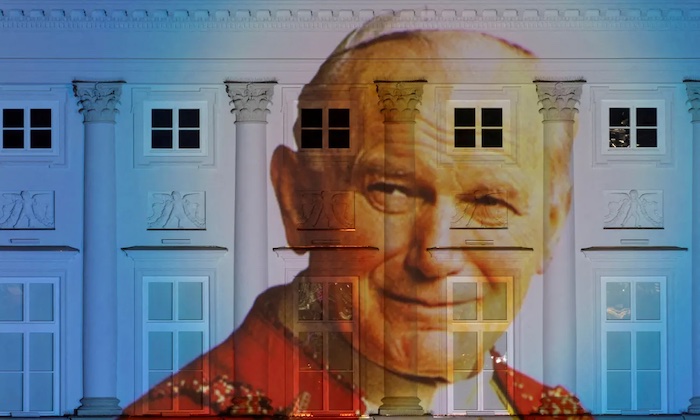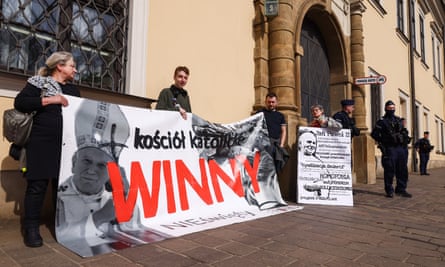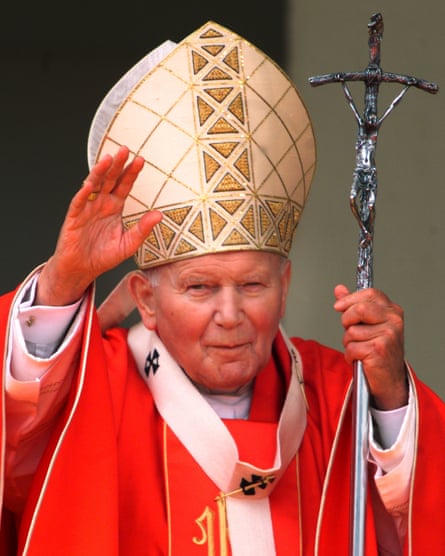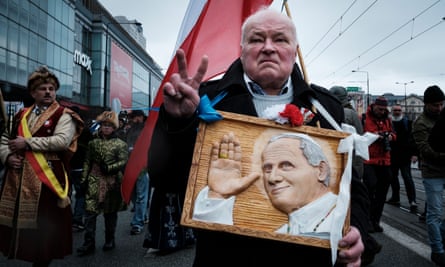— The LGBTQ advocacy group defended itself a day after the Dodgers disinvited them from Pride Night, while politicians and groups condemned the team.

A day after the Los Angeles Dodgers disinvited the Sisters of Perpetual Indulgence from their upcoming Pride Night after a leading anti-gay bigot and Florida Sen. Marco Rubio complained, the Sisters expressed “outrage and deep offense” at the team’s decision. At the same time, state politicians and LGBTQ organizations and supporters condemned the Dodgers’ action.
The events in the last 24 hours have become a PR headache from the Dodgers, with fans on social media expressing outrage and a Congressman urging a boycott of the June 16 Pride game, historically the largest one in sports (Disclosure: Outsports is a partner in the event). The media focus has centered on the Dodgers caving to anti-LGBTQ forces, not the kind of attention a team wants as it seeks to promote an event around inclusiveness.
In a statement posted on Twitter, the San Francisco Sisters of Perpetual Indulgence issued their first detailed comments about being disinvited from receiving the team’s Community Hero Award:
The San Francisco Sisters of Perpetual Indulgence a leading-edge Order of queer and trans nuns in San Francisco, Calif., today expressed their deep offense and outrage at the Los Angeles Dodgers’ recent decision to retract their offer of a Community Hero Award, to be presented to the Los Angeles Sisters, following criticism from religious conservatives.
The Dodgers capitulated in response to hateful and misleading information from people outside their community, who target not only the LGBTQQ++ community but also women’s autonomy over their bodies, people and communities of color, and other faiths and nationalities.
Brian Burch, president of CatholicVote, condemned the Sisters as a “blatantly perverted, sexual and disgusting anti-Catholic hate-group.” This is simply not true. The Sisters began in 1979 in response to the AIDS crisis, when gay men, who their faiths and families had abandoned because of their orientation, were sick and dying. The Sisters were among the first to raise money to help care for people with AIDS and to create and distribute safer-sex information.
In the decades since the Sisters have grown with chapters across the world. They are a 501(C)3 charitable organization that annually raises thousands of dollars to distribute to organizations supporting marginalized communities. They support other groups, including several mainstream churches, in their work. Sisters are regularly called upon to minister to the sick, the dying, and the mourning
Our ministry is real. We promulgate universal joy, expiate stigmatic guilt, and our use of religious trappings is a response to those faiths whose members would condemn us and seek to strip away the rights of marginalized communities,” said Sister Rosie Partridge, abbess of the San Francisco Sisters of Perpetual Indulgence.
The Sisters are not anti-Catholic, but an organization based on love, acceptance, and celebrating human diversity. To be condemned by representatives of the Catholic Church is particularly ironic, given that organization’s long history of condoning and concealing the sexual abuse of children. It’s a statistical fact that children are at less risk in the company of drag queens than clergy. Yet, the LGBTQQ++ communities are consistently targeted by the right, because it is easier to foment fear of the unfamiliar than to take a hard look at very real threats ranging from gun violence to global warming.
The San Francisco Sisters call on the LGBTQQ+ community and its allies to express their disappointment with the Dodgers by contacting them at fanfeedback@ladodgers.com or 866-DODGERS, option 9.
Do not let people who hate us all decide that some parts of our community are more tolerable than others, that some shall be seated at the table while others are locked out. We all stand on the shoulders of brave souls who endured much to get us this far and we owe it to them, and those yet to come, to condemn the voices of haters at every turn. The struggle continues, but we look forward to a better, more inclusive world where human diversity is seen as an advantage, not something to fear.
Meanwhile, state politicians and groups weighed in against the decision.
- The Los Angeles LGBT Center, the region’s largest, pulled its participation from the event and called on the team to reverse its decision, saying:
“We call on the Dodgers to reconsider their decision, honor the Sisters, and bring the true spirit of Pride back to Dodgers Stadium. If the decision is not reversed, we strongly encourage the Dodgers to cancel Pride Night. Any organization that turns its back on LGBTQ+ people at this damning and dangerous inflection point in our nation’s history should not be hoisting a rainbow flag or hosting a ‘Pride Night.’ We want the Dodgers ally ship to be consistent with our experience partnering with them over the past many years. The people of Los Angeles County have consistently and overwhelmingly shown up for LGBTQ+ equality. If one of our most beloved institutions — the Dodgers — refuses to stand by us at this moment, we are terrified of what will come next. Los Angeles is a leader — not a follower. We call on the Dodgers to set an example.”
- California State Sen. President pro tempore Toni Atkins tweeted: “Capitulating to demands from anti-LGBTQ officials in other states to remove the @LADragNuns from Pride Night is a shameful decision by the @Dodgers. I stand with the @LADragNuns — we will not give in to politicians who seek to silence our #LGBTQ+ community.”
- The ACLU of Southern California pulled out from Pride Night, tweeting: “The Dodgers, which broke the color line in baseball in 1947 by signing Jackie Robinson, were champions of inclusion. Seventy-six years later, they take a giant step backward banning a long-standing drag charity. In unity with @SFSisters, we will not participate in Pride Night.”
- U.S. Rep. Robert Garcia, the openly gay former mayor of Long Beach, called for a boycott, saying, “This is shameful and you will not divide and separate our community. I hope we all boycott your ‘pride night’ and protest this cowardly decision.”
- California State Sen. Scott Wiener from San Francisco, who is gay, got in a sports dig in his statement condemning the Dodgers: “In the past month, right wing mobs demanded that Anheuser Busch stop featuring a trans woman in an ad & that the Dodgers kick drag queens out of its Pride celebration. Both Anheuser Busch & the Dodgers caved. The danger to our community grows by the day. We expect more from our sports teams — even the Dodgers.”
My take
This whole controversy started with a letter from Sen. Marco Rubio to MLB Commissioner Rob Manford. Rubio represents Florida, literally on the opposite side of the country from Dodger Stadium, so it’s unclear why the Dodgers would give a damn about what Rubio says about anything. What pressure Manford might have put on the team is unknown.
Then longtime anti-gay bigot Bill “Gay Marriage is the Work of the Devil” Donohue of the Catholic League, an advocacy group that is not part of the church, weighed in to condemn the Sisters’ inclusion. No one who cares a whit about LGBTQ people should listen to a thing Donohue says. It’d be like someone organizing a Black History Month exhibit listen to input from the KKK.
The Dodgers’ biggest mistake was their knee-jerk reaction to the letter and caving in so quickly. Then game is not for a month, plenty of time to give the matter serious thought before reaching any decision. They then made it worse with a statement that threw the Sisters under the bus with zero acknowledgement to the heroic work they have done for 40 years, saying the decision was made because of the “strong feelings of people who have been offended.” So the standard is now anyone with “strong feelings” rule the day?
What happens next?
Damn if I know, but my guess is that more groups pull out as the word spreads. As for ticket sales, the Dodgers have the best attendance in baseball and the June 16 is against the hated San Francisco Giants so Dodger Stadium will be packed, though whether the team will match the 18,000 in specific Pride Night tickets from a year ago is unknown.
This whole thing is sad and infuriating because the Dodgers have been a pioneer for sports teams in addressing LGBTQ inclusion and that should be applauded. Yet they threw a lot of good will away when catering to the most extreme elements in society, people trying to reverse decades of progress at a time when LGBTQ people need all the allies we can get.
Complete Article ↪HERE↩!







